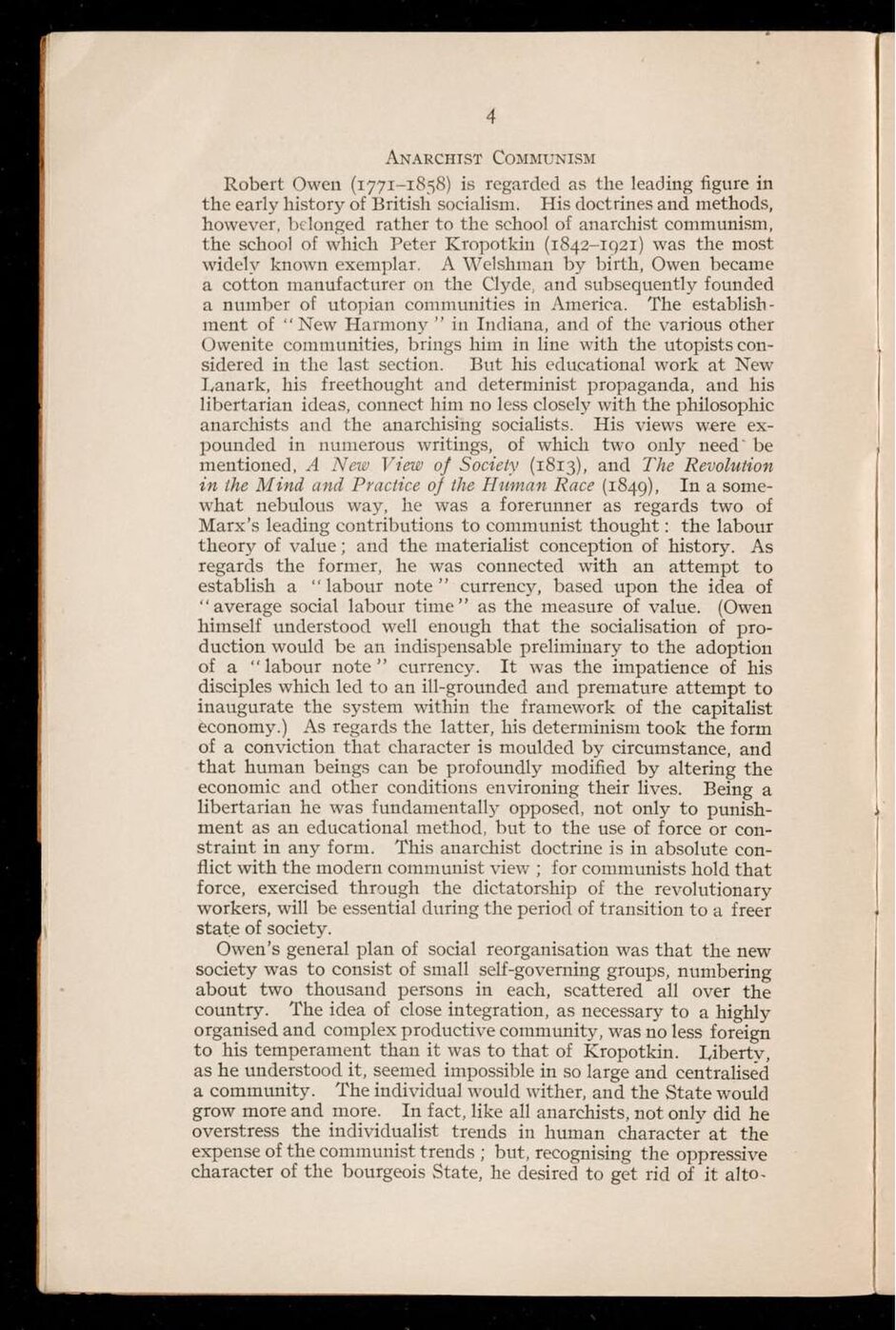4
Anarchist Communism
Robert Owen (1771–1858) is regarded as the leading figure in the early history of British socialism. His doctrines and methods, however, belonged rather to the school of anarchist communism, the school of which Peter Kropotkin (1842–1921) was the most widely known exemplar. A Welshman by birth, Owen became a cotton manufacturer on the Clyde, and subsequently founded a number of utopian communities in America. The establishment of "New Harmony" in Indiana, and of the various other Owenite communities, brings him in line with the utopists considered in the last section. But his educational work at New Lanark, his freethought and determinist propaganda, and his libertarian ideas, connect him no less closely with the philosophic anarchists and the anarchising socialists. His views were expounded in numerous writings, of which two only need be mentioned, A New View of Society (1813), and The Revolution in the Mind, and Practice of the Human Race (1849). In a somewhat nebulous way, he was a forerunner as regards two of Marx's leading contributions to communist thought: the labour theory of value; and the materialist conception of history. As regards the former, he was connected with an attempt to establish a "labour note" currency, based upon the idea of "average social labour time" as the measure of value. (Owen himself understood well enough that the socialisation of production would be an indispensable preliminary to the adoption of a "labour note" currency. It was the impatience of his disciples which led to an ill-grounded and premature attempt to inaugurate the system within the framework of the capitalist economy.) As regards the latter, his determinism took the form of a conviction that character is moulded by circumstance, and that human beings can be profoundly modified by altering the economic and other conditions environing their lives. Being a libertarian he was fundamentally opposed, not only to punishment as an educational method, but to the use of force or constraint in any form. This anarchist doctrine is in absolute conflict with the modern communist view; for communists hold that force, exercised through the dictatorship of the revolutionary workers, will be essential during the period of transition to a freer state of society.
Owen's general plan of social reorganisation was that the new society was to consist of small self-governing groups, numbering about two thousand persons in each, scattered all over the country. The idea of close integration, as necessary to a highly organised and complex productive community, was no less foreign to his temperament than it was to that of Kropotkin. Liberty, as he understood it, seemed impossible in so large and centralised a community. The individual would wither, and the State would grow more and more. In fact, like all anarchists, not only did he overstress the individualist trends in human character at the expense of the communist trends; but, recognising the oppressive character of the bourgeois State, he desired to get rid of it alto-
